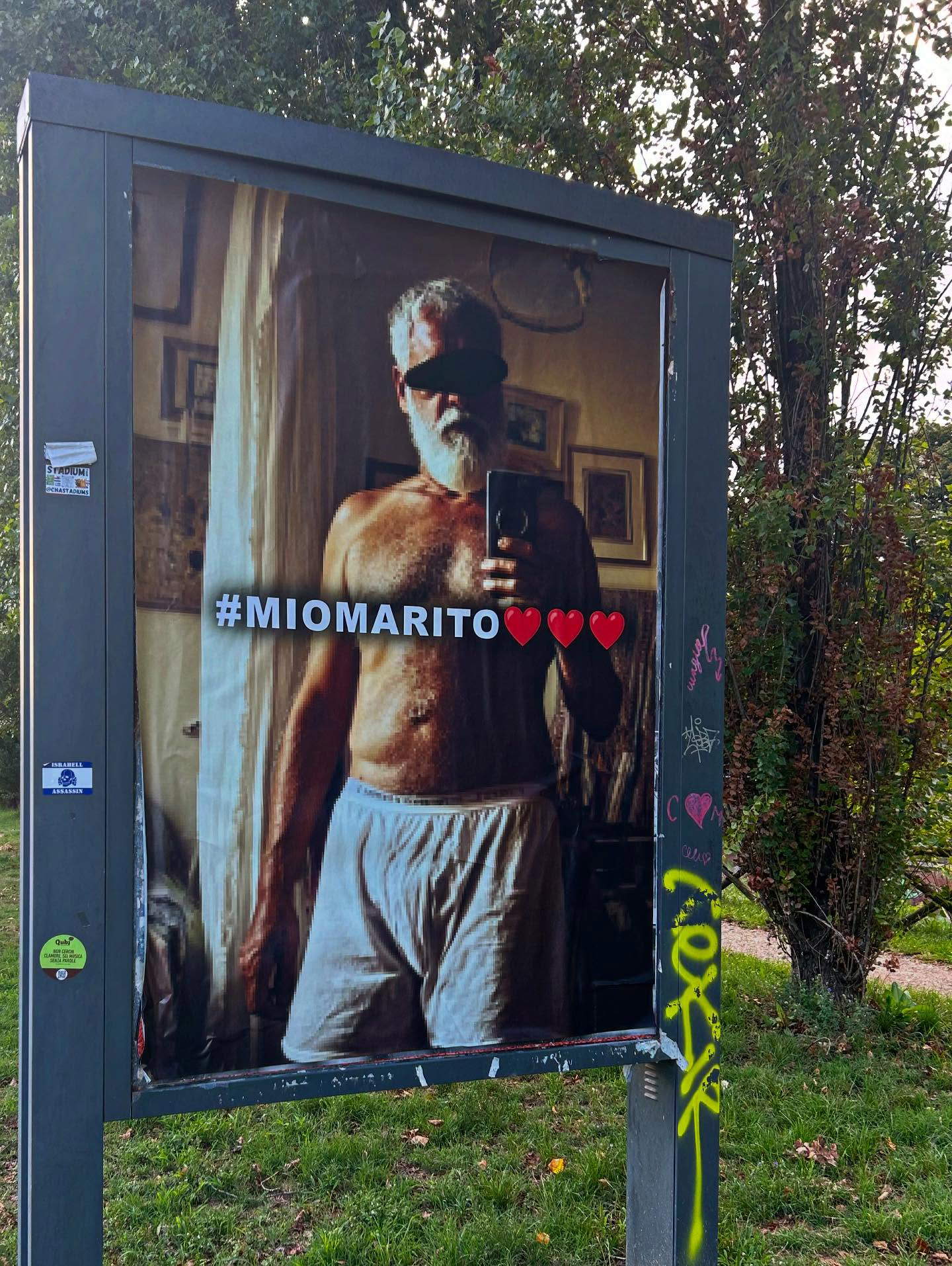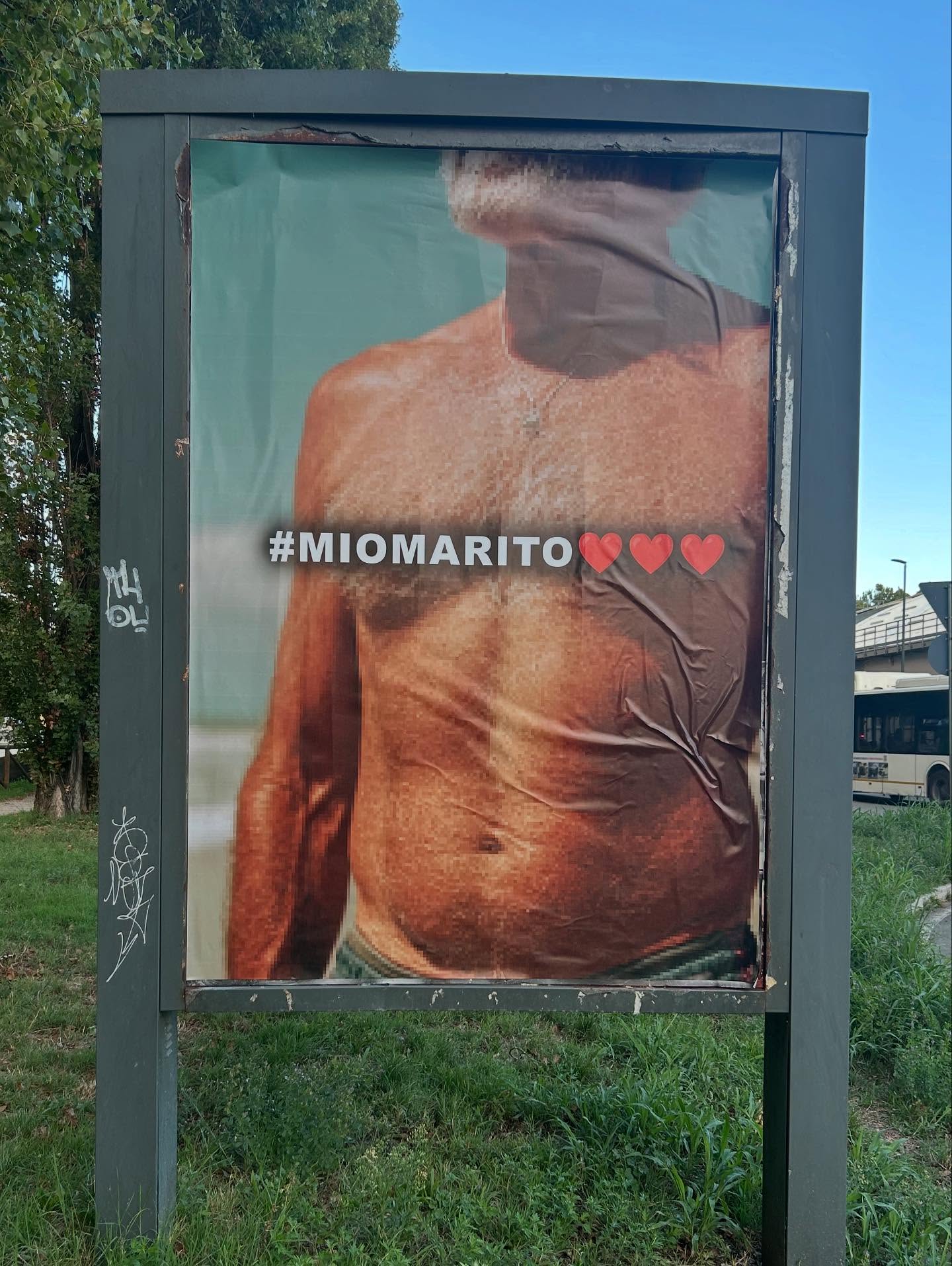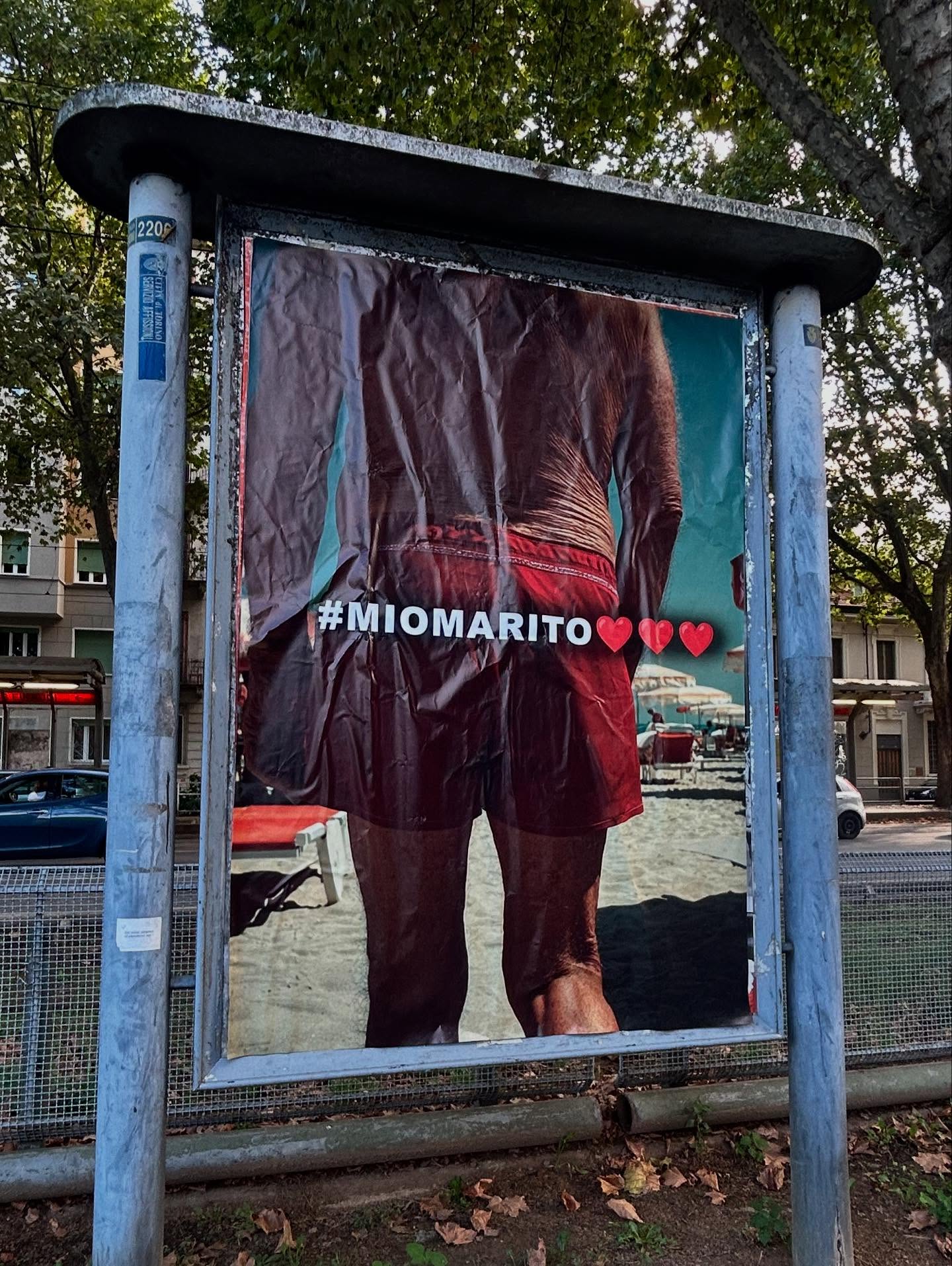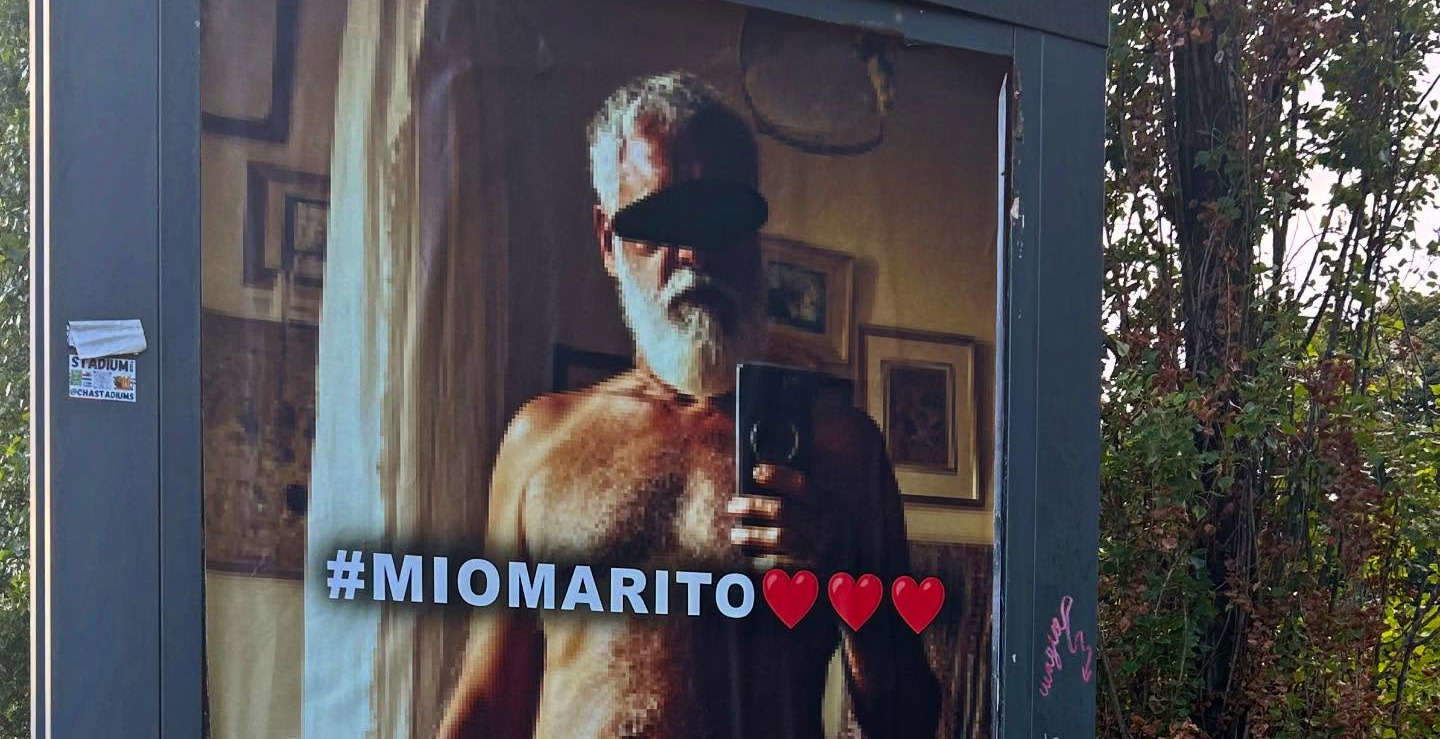In Turin, the gaze is reversed and the roles are reversed. The faces of the users of the social page “My wife,” which ended up at the center of controversy for sharing images of women without their consent, have appeared in their underwear on the walls of the Piedmontese capital with a new and mocking hashtag: “My husband” (#miomarito). This is the provocation launched by Andrea Villa, a Turin-based street artist known for his ironic and political actions, who decided to tackle head-on the issue of unequal treatment between men and women.
On the morning of Thursday, September 4, Torinese people crossing Lungo Dora Siena and Corso Regina Margherita found themselves in front of a series of unusual posters. Instead of the usual advertisements or institutional posters, images of men displayed in their underwearstood out, with features and contexts slightly altered to protect their identity, but clearly recognizable, as a “reversal” of the dynamic that had characterized the “My Wife” page. Below the images, the hashtag #mywife emphasized the desire to flip the perspective and return a political and social message.
In a post published on his Facebook profile, Andrea Villa explained the nature of the project, “’My husband’ is a series of posters that overturns the patriarchal gaze underlying spaces such as the ’My wife’ group, where men share private photos of their female companions without consent. In this work, the protagonists become them: husbands, displayed in the public square without permission, with slightly altered faces and contexts. The work questions the concept of possession and the social double standard, recalling the case of the schoolteacher fired for her activity on OnlyFans: while women are punished and stigmatized, men rarely suffer consequences. ’My Husband’ thus becomes an act of resistance and symbolic rebalancing.”



The action is part of a reflection that Villa has been conducting for years, through urban interventions that combine irony, irreverence and social denunciation. In this case, the reference is not only to the “My Wife” page, a symbol of a digital male community that uses images of women as commodities for exchange and entertainment, but also to broader episodes that have marked public opinion. The artist recalled in particular the case of the schoolteacher fired for her activity on OnlyFans, an affair that raised controversy about the moral judgment reserved for women and the disproportionate consequences compared to men.
Villa points out how, in contemporary society, the female body is still perceived as an object of control, judgment and ownership, while male transgressions rarely generate comparable reactions. With “My Husband” he therefore intends to make the double standard visible.
The project did not fail to elicit reactions. Within hours, photos of the posters spread on social media, garnering comments ranging from enthusiastic approval to criticism. In fact, there are those who wonder if this is really the way to respond to the undergrowth from which the “My Wife” group was born: among them, for example, journalist Clara Latorraca , who from the columns of La Nazione commented on Andrea Villa’s idea, calling it “an action that can perhaps bring a momentary satisfaction, but that also raises some perplexities.” Indeed, “while Villa’s operation overturns the patriarchal gaze, it also risks replicating its logic,” Latorraca writes. “Indeed, the artist uses the same dynamic as the perpetrators: he takes images of bodies without consent and publicly displays them, albeit with partially obscured faces and with an overtly political intent. This gesture, however animated by a desire to denounce, raises the question of whether it is possible to combat symbolic violence by reproducing the same modalities, simply by reversing the subjects. A further potentially problematic point concerns the position of the perpetrator of the action. Andrea Villa is a man intervening in a space that is primarily about women’s bodies and experiences. One might wonder whether the fact that he is the one who ’voices’ the denunciation does not end up reproducing, albeit in a different form, a mechanism of male centrality: once again, it is a man who occupies center stage, while women are left with the role of indirect victims or symbols. Andrea Villa’s operation highlights an unresolved tension: on the one hand, the urgency to denounce and make visible the symbolic and material violence that runs through spaces such as the ’My Wife’ group, and on the other hand, the risk that the chosen modality ends up replicating the very logic it would like to dismantle.”
This is not the first time Andrea Villa has taken to the streets provocations capable of catalyzing media attention. Over the years, he has signed numerous interventions that have played with current political events, pop culture and social issues. His stylistic signature is that of a “guerrilla artist” who uses urban space as a stage and surprise as a communicative lever. Once again, the walls of Turin become the canvas on which to write a message that, although ephemeral in its materiality, leaves traces in the collective debate.
Even the choice of locations is not random. Along Dora Siena and Corso Regina Margherita are areas crossed daily by a constant flow of people, students and workers, neighborhoods where street art has often found fertile ground. To bring “husbands” in their underwear there is to place provocation in the beating heart of the city, forcing passersby to stop, look and react.
The “My Wife” page, which has long since ended up at the center of criticism, thus becomes the pretext for an operation that broadens the view of the cultural system that makes it possible. The group, founded to share intimate photos of female companions without permission, had attracted the attention of the press and investigators, but Villa’s intervention shifts the discourse from the judicial level to the symbolic one, transforming the private violation into a public act of denunciation that now becomes itself the subject of debate.
 |
| Turin, to avenge "My wife" group here are "My husband" posters. Is this the correct answer? |
Warning: the translation into English of the original Italian article was created using automatic tools. We undertake to review all articles, but we do not guarantee the total absence of inaccuracies in the translation due to the program. You can find the original by clicking on the ITA button. If you find any mistake,please contact us.